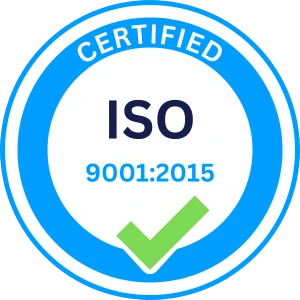In today’s fast-paced digital age, technology has permeated every facet of our lives. Education is no exception to this trend. With the education landscape continually evolving, the need for efficient management systems within educational institutions has become paramount. Enter the Campus Management System, a technology-driven solution that has revolutionized how educational institutions are run.
The term “Campus Management System” might sound complex, but it’s essentially a sophisticated software solution designed to streamline and optimize various aspects of educational institutions, including colleges, universities, and other higher education establishments. It serves as an all-in-one Enterprise Resource Planning (ERP), Learning Management System (LMS), and Customer Relationship Management (CRM) platform tailored to the unique needs of educational institutions.
What is a Campus Management System
A Campus Management System (CMS), often referred to as a Student Information System (SIS) or an Education Management System, is a comprehensive software solution designed to help educational institutions, such as schools, colleges, universities, and other educational organizations, manage their day-to-day operations and administrative tasks efficiently. It serves as a centralized platform to streamline various functions and processes within an educational institution
Key Features of a Campus Management System
Now, let’s delve deeper into the key features that make a Campus Management System indispensable for modern educational institutions.
Student Information Management
One of the primary functions of a Campus Management System is to manage student information efficiently. It encompasses tasks such as enrollment, registration, academic records, and providing students with portals for accessing their information.
Academic Management
Educational institutions require meticulous management of academic operations, including curriculum planning, course scheduling, and faculty management. A robust Campus Management System helps in these areas by providing tools to streamline these operations.
Financial Management
Managing finances in an educational institution involves complex tasks like fee collection, budgeting, accounting, and financial reporting. A Campus Management System offers an integrated financial management solution that ensures transparency and efficiency in financial operations.
HR and Payroll Management
Human resources and payroll management are pivotal for educational institutions. These systems involve maintaining employee records, processing payroll, and implementing human resource analytics. A Campus Management System simplifies these tasks, ensuring employees are paid accurately and on time.
Admissions and Enrollment
Managing the admissions and enrollment process efficiently is crucial for educational institutions. A Campus Management System provides features for handling online applications, admission workflow, and the selection and confirmation of students.
Benefits of a Campus Management System
Now that we’ve explored the fundamental features of a Campus Management System, it’s time to understand the benefits that these systems bring to educational institutions.
Efficiency and Productivity
One of the most significant advantages of implementing a Campus Management System is the improved efficiency and productivity it offers. It streamlines administrative processes, automates routine tasks, and leads to significant time and cost savings.
Data Accuracy and Accessibility
A Campus Management System centralizes data, ensuring real-time updates and data security. This enhances data accuracy and accessibility, leading to better decision-making.
Enhanced Student Experience
Students are at the heart of every educational institution, and their experience matters. Campus Management Systems provide self-service portals, timely notifications, and academic support that enrich the student experience.
Improved Decision-Making
Data-driven insights and analytics are integral to making informed decisions in educational institutions. A Campus Management System provides the necessary tools for analyzing data, generating reports, and enabling strategic planning.
Choosing the Right Campus Management System
As with any significant decision, selecting the right Campus Management System requires careful consideration.
Here are some crucial factors to ponder.
Assessing Your Institute’s Needs
Before choosing a system, it’s essential to identify your institute’s objectives. Understanding what you need will help in finding the right solution.
Scalability and Flexibility
Educational institutions evolve and grow. Therefore, it’s crucial to select a system that can adapt to your institution’s changing needs. Look for systems that offer customization options and future-proofing.
Integration Capabilities
Most educational institutions already have existing systems in place. Choosing a Campus Management System that can seamlessly integrate with these systems ensures a smooth transition.
User-Friendly Interface
Accessibility and user experience play a pivotal role in the successful implementation of any system. Ensure that the system you choose is user-friendly and that adequate training and support are available.
Why QualCampus All-In-One Solution
With the myriad of options available, you might be wondering why QualCampus stands out as an ideal Campus Management System.
Let’s delve into the reasons.
QualCampus: Your Ideal Campus Management System
QualCampus is a comprehensive Campus Management System designed to meet the unique needs of educational institutions. It’s an all-in-one solution that combines ERP, LMS, and CRM features in a single platform.
Integration of ERP, LMS, and CRM
One standout feature of QualCampus is the seamless integration of ERP, LMS, and CRM. This integrated approach means that an educational institution can manage administrative, academic, and student-related functions within a single platform.
A Case Study in Success: Transforming the Admission Process
A tangible example of QualCampus’s success can be found in its ability to transform the admission process. By providing tools for online applications, efficient admission workflows, and enhanced student communications, QualCampus has simplified and streamlined the entire process.
Streamlined Efficiency, Enhanced Student-Centricity
QualCampus focuses on increasing operational efficiency while simultaneously enhancing the student-centric experience. This dual focus ensures that both the institution’s internal processes and the students’ experience are optimized.
Future-Proofing Admissions
As educational institutions continue to evolve, so does QualCampus. The system is built to accommodate changes and updates, ensuring that your institution is always equipped with the latest tools and features.
Conclusion
In conclusion, a Campus Management System is an essential tool for educational institutions looking to thrive in a fast-paced, technology-driven world. These systems provide the means to manage and optimize administrative, academic, and student-centric functions effectively. QualCampus, with its all-in-one solution, stands as a testament to the evolving landscape of education. With the ability to streamline admissions, enhance operational efficiency, and provide a seamless experience for students, QualCampus exemplifies how technology can revolutionize education.
As the education sector continues to adapt and grow, the role of Campus Management Systems like QualCampus will undoubtedly become more significant. These systems are no longer just an option but a necessity for any institution aiming for excellence in the modern educational landscape.









